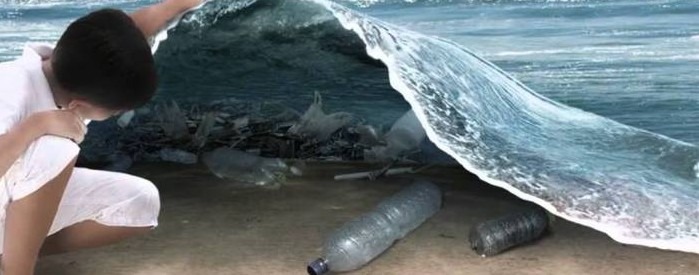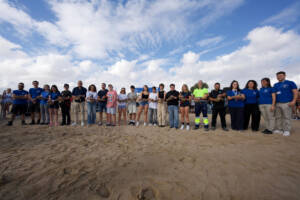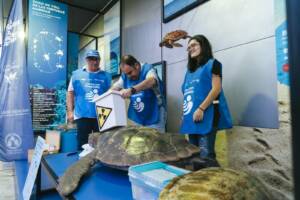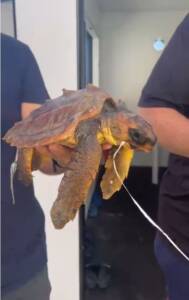The Oceanogràfic Foundation warns about sea pollution on San Juan’s Eve
- Throwing bottles, plastics, and wood on the shore poses a serious risk to marine fauna and flora
- “What is a night of celebration for us, is a lifetime of pollution for the sea”
The Oceanogràfic Foundation would like to warn about the damages and harm that garbage can cause to the sea and the animals that inhabit it. Throughout San Juan’s Eve, trash accumulates on the beaches along the Valencian coast, despite the cleaning efforts made by the respective city councils immediately after the night’s festivities.
The remains of the celebration on the coast add up to an accumulation of objects and debris that pollute the waters and pose a serious danger to aquatic fauna, as noted by researcher Chelo Rubio of the Oceanogràfic Foundation of the Oceanogràfic of Valencia, managed by Global Omnium through Avanqua.
One night of partying, years of pollution
“What for many people is a night of celebration, in which everything is consumed and left on the sand waiting for the cleaning services to arrive, for the sea it becomes a pollution that lasts for many years, harmful to animals. For example, turtles swallow everything that floats in the sea and confuse plastics, for example, with fish, which becomes a lethal confusion. And if the damage does not occur immediately, we can later find many of these animals with plastic remains in their stomachs over the years.”
In addition, Dr. Rubio warns that the damage not only occurs in certain marine animals such as turtles or dolphins but, even more globally, in the general contamination of the waters, with the harmful effect that this has on the subsistence of fauna and flora.
“Pollution in the oceans is growing every year, and not only with plastics and the generation of microplastics. It is everything we throw into the sea. People have to take into account that, just as we are aware of air pollution, which directly affects us, for fish, water is their “air,” and if it is contaminated, they suffer all kinds of damage, stop breathing, and die en masse.”
The Mediterranean swallows the garbage
In the Mediterranean, tides are not noticeable. Tides are caused by the gravitational pull of the Sun and the Moon on large open bodies of water, and the enormous standing waves generated are then significantly influenced by the coastal relief of the large oceans. This is not the case of the Mare Nostrum, which is a practically closed sea, open only to the Atlantic through the Strait of Gibraltar. That is why it is not affected by these large tidal waves.
“However,” says the scientific advisor of the Oceanogràfic, Manuel Toharia, “precisely because it is an almost closed sea, there are rises and falls in level, sometimes of appreciable quantity, due to accumulations of water when a constant wind blows in one part of the sea for a long time, carrying the water to the other side. These effects also occur – popularly known as rissagas – when there are high pressures in one area of the sea and low pressures in the other.”
These phenomena of rissaga and waves, added to the marine currents parallel to the coast, end up engulfing the organic and non-organic remains that are carelessly deposited on the shore. Precisely when many people enjoy the night of celebration, it often happens that some of them end up leaving or throwing plastic bottles, glass, wood and other waste elements into the water; in addition, coastal breezes often contribute to carrying plastic bags, papers and, in general, light waste to the sea.




